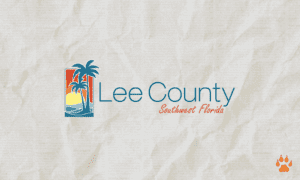By: Katrina Salokar | East Lee County News
Warren Buffett’s Berkshire Hathaway recently made a massive $800 million investment in Lennar, with a smaller $191.5 million stake in D.R. Horton. Both are giants of the sprawl machine that’s remaking Florida’s landscape one subdivision at a time.
Buffett isn’t a stranger to housing—Berkshire already owns Clayton Homes, the nation’s largest manufactured homebuilder. So why double down now?
WHY BUFFETT MIGHT BE MOVING NOW
• Population & Political Winds: Florida remains the fastest-growing state in the U.S., with a pro-development political climate that routinely sides with builders over residents and local governments. If you believe the state will keep paving over land to make way for endless subdivisions, investing in Lennar and D.R. Horton makes cold, hard sense.
• Housing as a “Safe Haven”: With volatility in tech and banking, housing is often seen as a stable bet—especially in growth states where regulation is light and demand is high. Buffett is a master at reading when industries are “protected” by political and market tailwinds.
• Government Greenlights: State leaders continue to fast-track permits, undercut local planning authority, and push back against environmental restrictions. That means fewer roadblocks for the very companies Buffett is now backing.
WHAT THIS MEANS FOR FLORIDA
For residents, the implications are stark:
• More Sprawl, Less Planning: Investments of this size don’t just reflect confidence in the market—they fuel it. Lennar and D.R. Horton will now have the capital (and the Wall Street confidence) to push harder and faster into our farmland, wetlands, and open space.
• Infrastructure Strain: Schools, roads, and water systems are already overwhelmed. More unchecked development will deepen these crises.
• Stronger Developer Influence: Buffett’s billions send a signal that the pro-development agenda in Florida isn’t weakening—it’s getting stronger, and backed by the biggest names in global finance.
Buffett’s stake is more than a financial bet—it’s a reflection of the imbalance of power in Florida. While communities are fighting for sustainable growth, clean water, and livable neighborhoods, Wall Street sees Florida as a land grab. And with state government rolling out the red carpet, the only question left is: will citizens push back hard enough to stop Florida from being sold off one subdivision at a time?
KEY GROWTH REGIONS AND MARKET STRATEGIES
• Southeast: This is D.R. Horton’s largest and most robust market. In the fiscal year ending September 2024, the Southeast region generated the company’s highest homebuilding revenue. Florida remains a major focus, with active communities in Fort Myers, Cape Coral, Jacksonville, and Pensacola.
• Texas: The company has a significant presence in Texas markets, particularly in and around Houston. This is one of the largest and most consistent housing markets in the U.S.
• California: D.R. Horton has communities across California, including the Inland Empire (Riverside-San Bernardino), Bakersfield, Fresno, and Los Angeles.
• Mountain West: The Las Vegas market is a target growth area, with several new communities underway.
• Expansion through acquisition: The company also enters and expands in attractive markets through strategic acquisitions. For example, it acquired Truland Homes in 2023 to boost its presence in Baldwin County, Alabama, and Northwest Florida.
WHAT ELSE IS IN IT FOR THEM
Large, publicly traded builders like Lennar, D.R. Horton, and others have built out entire ecosystems around the core act of selling you a house. These “secondary income streams” are often embedded in the transaction, creating long-term revenue for the builder even after the sale. Many critics see them as predatory or extractive.
1. Captive Mortgage & Financing
• Most big builders operate their own in-house mortgage companies (e.g., Lennar Mortgage, DHI Mortgage).
• Buyers are often heavily incentivized—or subtly pressured—to use the builder’s financing by dangling upgrades, lower interest rates, or closing cost credits.
• These mortgage arms generate substantial profit on top of the house sale and may steer buyers into loans that benefit the builder, not necessarily the buyer.
2. Title & Settlement Services
• Builders frequently own or partner with title companies.
• Just like with financing, buyers are incentivized to use them. This adds another revenue stream for the builder, even though buyers might find cheaper or more favorable terms elsewhere.
3. Home Insurance & Warranties
• Builders push buyers into preferred insurers and costly “warranties” that offer little coverage, serving the builder’s bottom line more than the homeowner’s protection.
4. HOA Control & Delayed Turnover
• Developers often control HOAs at launch, collecting fees without providing full services and delaying turnover to residents.
• Homeowners who push back face costly legal battles, with few lawyers willing to challenge the builders.
WHY IT MATTERS IN FLORIDA
Florida’s political climate makes this even more concerning:
• Weakened consumer protections → fewer checks on steering buyers into affiliated companies.
• Fast-tracked development approvals → more leverage for builders to bundle land, housing, and services.
• High in-migration demand → buyers often feel they have no choice but to accept whatever the builder offers, no matter how lopsided.
WHAT CAN YOU DO ABOUT IT?
The scale of Wall Street’s investment in Florida homebuilding can feel overwhelming, but local residents are not powerless. Communities across the state have begun to organize, push back, and demand smarter growth. Here are some ways you can get involved:
• Stay Informed: Follow local planning board and county commission meetings where zoning changes and development approvals are decided. These are often where the most consequential decisions are made.
• Speak Up: Public comment matters. Attend hearings, write letters, and share your concerns about infrastructure, water quality, and overdevelopment with elected officials.
• Support Strong Growth Policies: Back candidates and policies that prioritize balanced growth, conservation, and infrastructure investment before more building approvals are handed out.
• Protect Consumer Rights: Demand stronger oversight of predatory builder practices, from mortgage steering to mandatory HOA contracts.
• Build Coalitions: Join or form local groups that bring together residents, civic organizations, and environmental advocates to push back against unchecked development. Change doesn’t happen overnight, but citizen action can—and often does—reshape the conversation. If Buffett’s billions are a sign that the development machine is only getting stronger, it’s also a wake-up call for Floridians to decide what kind of future they want for their state.








